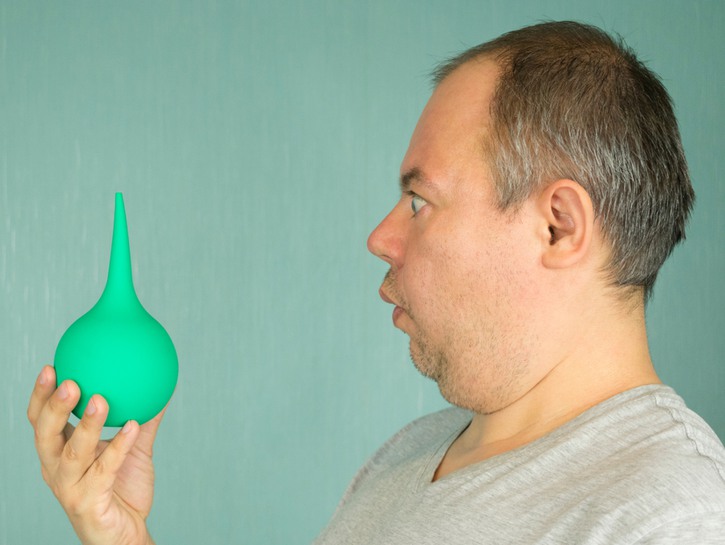Gut health is a big deal these days. Turn on the TV and you’ll probably see a commercial for probiotics that “help with gut health.” From natural yogurt to fiber and more, it’s safe to say people are paying attention to their gut.
But what about “poo transplants?” Would you do it? Do you know what it even means?
Medical researchers in the New Zealand and the UK are asking donors for “super poo” that they hope to implant in patients with poor gut health in the hopes of improving it.
Just how does this crazy sounding process work?

axeiz/Shutterstock.com
First, you have to find a donor. The researchers have found that there are plenty of people that are happy to send their feces off to be implanted. According to the BBC, “There’s no good evidence that vegan poo is better than any other human feces, but experts are exploring what might make a stool ‘super.'”
So they are happy to take donations from wherever they can find them.
Once they have the donated feces, they study it and if if meets the proper criteria for having “good bugs” – the kind your gut needs and wants – then the feces may be implanted in a patient with poor gut health and/or gastrointestinal issues. It could even go further than that, as Dr. Justin O’Sullivan states in the BBC article, it could lead to breakthroughs in other “microbiome-associated conditions like Alzheimer’s, multiple sclerosis and asthma.”
Could poop really treat or cure all these things?

T. L. Furrer/Shutterstock.com
There is still a lot of research to be done on this subject.
“Currently, most donations are used to treat a dangerous bowel condition caused by an infection called clostridium difficile,” according to the BBC, but they have had luck finding super donors with super poo. People willing to poop in a box and drop it off to researchers. Claudia Campanella is one of those and she says, “I collect my fresh sample at home in a container that my hospital provides. Then I drop it off to the hospital as I pass by it on my way to work. It’s just a little bit of effort.”
We are all happy that people like Claudia are willing to make the effort, we’re not sure if we’d be willing to. Would you?
